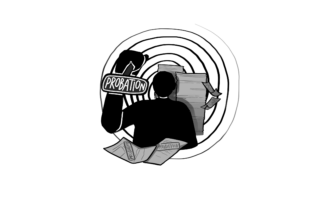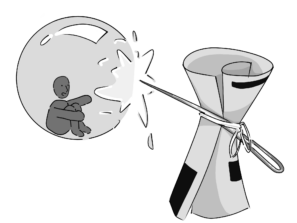With the release of the memoir “Battle Hymn of the Tiger Mother” by Amy Chua back in January, the stark cultural divide regarding the parenting styles of the East and West has been brought to the forefront of national attention. Instead of the intense disagreement that has ensued, parents and students alike must realize the importance of keeping an open mind regarding the expectations versus the reality of parenting.
Since day one, Chua’s daughters were never allowed to have a playdate, watch television or get any grade less than an A in any class except gym and drama.
There were other restrictions, but all of them stemmed from her belief that children must work to become successful, even if it means parents must do whatever is necessary to override their preferences.
Chua identifies the critical differences between the parenting styles of the East and West including how Western parents are too overly concerned with the psyche of the children. She asserts that children should spend their lives repaying their parents by obeying them and making them proud since parents such as her know what is best for them.
The results of such a practice are certainly telling. Daughters Sophia and Louisa are considered piano and violin prodigies that have performed in many prominent venues including Carnegie Hall. Their stellar academic performance and mastery of the performing arts are attributes commonly associated with a child that has experienced such an upbringing.
In many respects, Chua’s memoir can be considered a rebuttal to the documentary “Race to Nowhere” released in September of last year.
The film highlights the push for academic success that seems to have transformed the schooling process for both the stressed students and the concerned parents.
Both the film and the memoir present very convincing arguments in support of their methodologies and have considerably different ways of defining the term “successful.”
While one sees financial stability as a major factor, the other considers the happiness that is found from within an individual that does not necessarily correlate to high monetary status.
The role of the school in this debate also becomes a point of contention between the two sides. Each educational institution is designed to prepare a student for the next level of academic rigor and also acts as a time for students to try various things in order to find a niche.
Upon high school graduation, students should have a good idea regarding their likes, dislikes, strengths and weaknesses which should be the determining factors in their life and occupational decisions.
As for the relationship between parent and child, it is wise for both sides to reevaluate exactly what their expectations are both parties involved.
There must be a degree of mutual respect and understanding with one another that takes into account the reality of the situation that develops over time.
Parents possess the knowledge and experience in life that they can use and teach to their children while they are growing up. The two ends of the parenting spectrum are merely differing levels of how far parents should go to influence the life of their children.
Any fundamental disagreements can be overlooked if the common goal of doing what is best for the child is realized.


